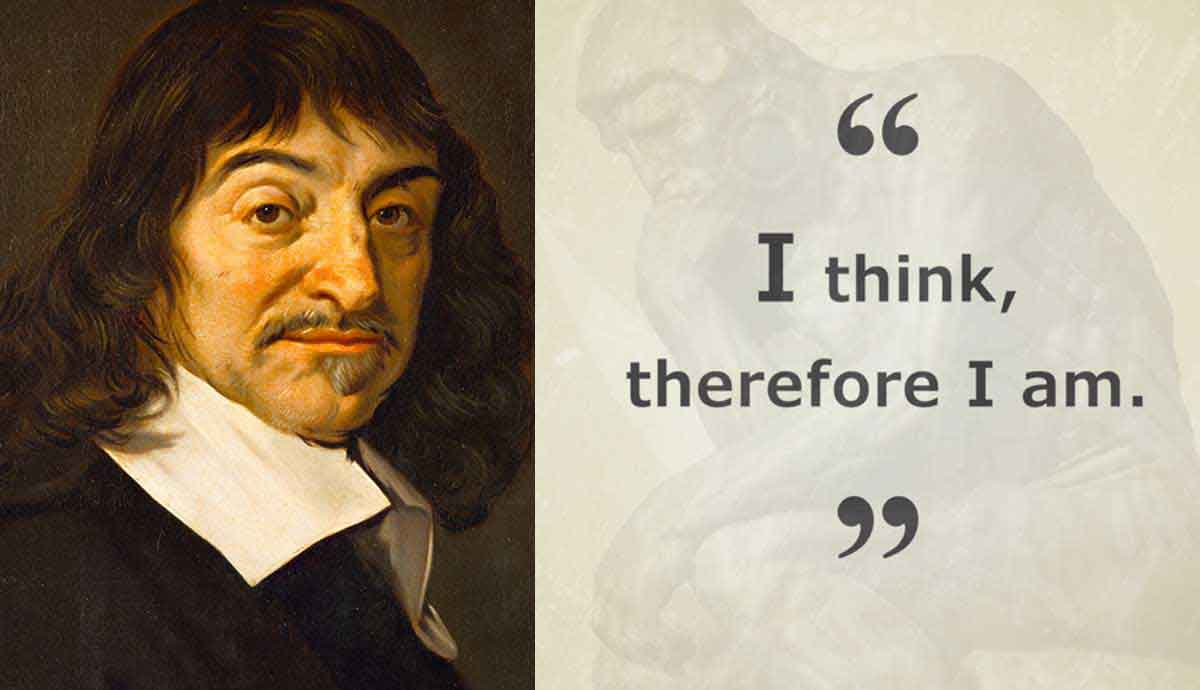I Think, Therefore I Am: A Christian Perspective
The phrase “I think, therefore I am” (Latin: Cogito, ergo sum), made famous by the 17th-century philosopher René Descartes, is a foundational statement in Western philosophy. Descartes sought to establish a starting point for knowledge that was beyond doubt, and he concluded that because he could doubt everything except his own doubting, his existence was certain. While this phrase has influenced philosophy for centuries, a Christian evaluation helps us see its strengths, limits, and the greater truth found in Scripture.
The Origin of the Phrase
René Descartes (1596–1650) introduced “I think, therefore I am” in his Meditations on First Philosophy. His goal was to find something absolutely certain in a world of skepticism. He reasoned that even if everything he perceived were false, the very act of doubting proved the existence of a thinker. In Descartes’ logic, thought became the foundation for reality, and human reasoning the ultimate starting point for truth.
The Biblical View of Existence
While Descartes rightly recognized the certainty of his own existence, Scripture offers a deeper and more reliable foundation. The Bible teaches that our existence is not based on our ability to think but on the creative act of God:
“And God said, Let us make man in our image, after our likeness.” (Genesis 1:26 KJV)
Our identity and being are rooted in God’s creative power, not in our reasoning. The Apostle Paul affirmed this when he said:
“For in him we live, and move, and have our being.” (Acts 17:28 KJV)
From a biblical perspective, thought is a gift and evidence of God’s image in humanity, but it is not the foundation of reality. God’s Word is the true starting point for all knowledge and existence.

The Role of the Mind in Christianity
Though our existence is not grounded in thought, Scripture emphasizes the importance of the mind. God created humans with reason, intellect, and the ability to know Him. Jesus said:
“Thou shalt love the Lord thy God with all thy heart, and with all thy soul, and with all thy mind.” (Matthew 22:37 KJV)
Our ability to think is not autonomous; it is designed to glorify God. Christians are called to “bring into captivity every thought to the obedience of Christ” (2 Corinthians 10:5 KJV). Thinking is a tool, but it should be shaped by divine revelation rather than human speculation.
The Limits of “I Think, Therefore I Am”
Descartes’ reasoning assumes that human thought can serve as the ultimate foundation for truth. However, this neglects the fallenness of the human mind. The Bible teaches that sin has corrupted human reasoning:
“Because that, when they knew God, they glorified him not as God, neither were thankful; but became vain in their imaginations, and their foolish heart was darkened.” (Romans 1:21 KJV)
While Descartes reached certainty about his own existence, he could not logically prove the reality of God, morality, or the external world without divine revelation. Christianity begins not with self-awareness but with God’s self-existence:
“I AM THAT I AM.” (Exodus 3:14 KJV)
Only God is self-existent, and our existence is entirely dependent on Him.
A Christian Reframing: “God Thinks, Therefore I Am”
From a biblical worldview, a more accurate statement would be “God thinks, therefore I am.” Our existence is grounded in God’s eternal plan and creative will, not our mental processes. Before we were born or had a single thought, God knew us:
“Before I formed thee in the belly I knew thee.” (Jeremiah 1:5 KJV)
Our identity and worth are not self-determined; they are given by our Creator.
“I think, therefore I am” captures an important philosophical insight: consciousness reveals personal existence. However, Christianity teaches that true reality is not self-authenticated by thought but divinely sustained by God. Human reasoning is a gift from the Creator, but it is limited, fallen, and dependent on divine revelation for truth. Instead of beginning with ourselves, Christians begin with God, who is the great “I AM.” We exist, not because we think, but because He wills it, sustains it, and gives our lives purpose.





No comments yet. Be the first to share your thoughts!